Is The Rock in Franklin too loud? Here's what a $200K sound study discovered.
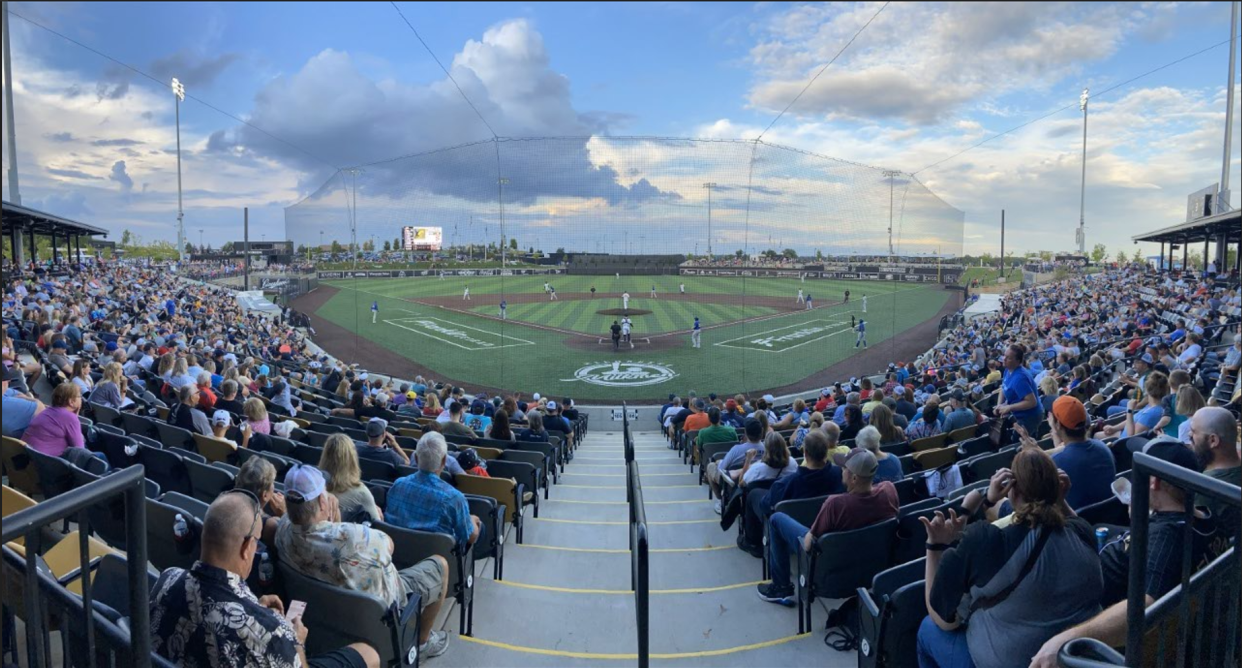
The results are in, and The Rock Sports Complex in Franklin might be rocking a little too loudly at times.
Milwaukee County contracted Resource Systems Group Inc. to conduct a six-month study on the sound levels at The Rock, 7011 S. Ballpark Drive, Franklin, bordering Greendale, to determine if residents' complaints of excessive noise were valid.
The study found that fireworks and live music events at the Umbrella Bar are the primary culprits for excessive noise. Milwaukee Milkmen games could also occasionally create a cacophony clearly heard in a nearby neighborhood, according to RSG's results.
A combination of long-term unattended continuous sound monitoring and short-term attended monitoring was conducted from July 2022 to January 2023. The three continuous monitors were placed near West Hawthorne Lane, on the east side of South 76th Street, and near the ski hill.
RSG performed the $200,000 study with assistance from Bowlby and Associates, Inc., Beth Foy Associates, and the Law Office of Dennis M. Grzezinski.
“RSG's sound monitoring study has documented various activities at the ROC which are clearly capable, as a result of their volume and nature, to annoy, irritate, and disrupt the quiet enjoyment, and disturb the sleep, of residents in Franklin and Greendale neighborhoods adjacent to the ROC during both daytime and nighttime hours,” Grzezinski said in a summary memo of the results, adding audio can sometimes be heard up to two miles away.
Now News Group reached out to ROC Ventures Owner and CEO Mike Zimmerman as well as Steve Taylor, executive director of the ROC Foundation, for their thoughts on the results but received no reply.
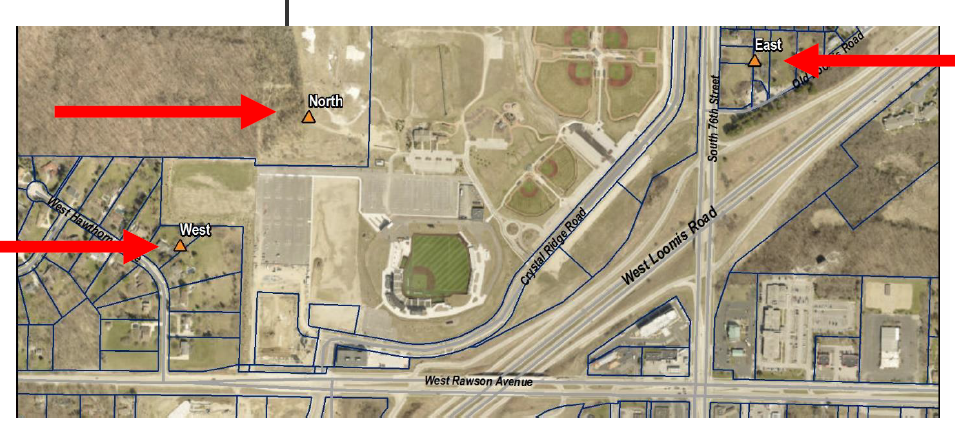
What activities at The Rock were in compliance?
The study found activities at the Luxe Golf facility, movies at the Milky Way Drive-In, indoor events at The Lodge and recreational baseball “do not substantially contribute to the sound environment in the residential areas,” according to RSG’s report.
The Hills Have Eyes event wasn’t distinguishable in the sound level data with decibels between 46 and 51, with sound more noticeable to the east and north.
Snowmaking at The Rock Snowpark didn’t have an appreciable effect on sound levels to the east and west, but high levels registered at the north monitor due to the monitor's proximity to the equipment ― the average of the three meters was between 45 and 72 decibels for event and background noise combined.
When were sound level increases at The Rock notable?
All three meters recorded “notable increases” in sound around 9 p.m. on weekends coinciding with music at the Umbrella Bar. Live music at the bar exceeded Franklin’s noise limits in what RSG termed "Neighborhood B" and the Greendale limits in Neighborhoods B and E.
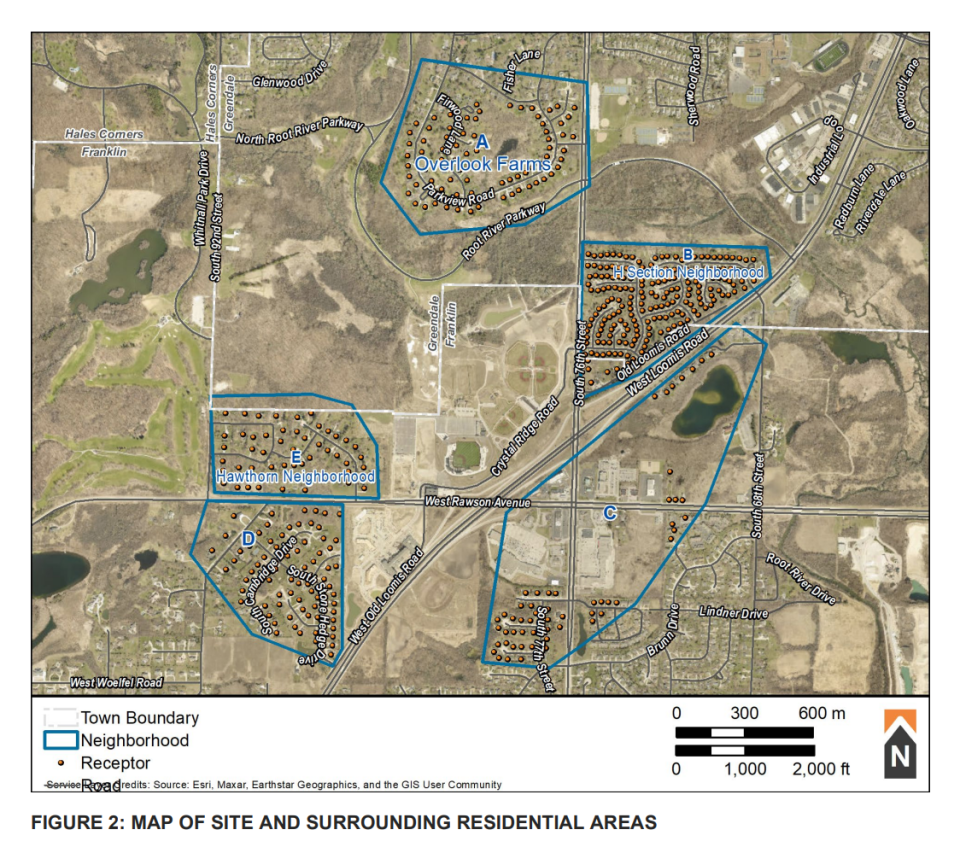
The study found the worst-case event of live music happened around 9 p.m. and hit 60 decibels on the north monitor, 58 on the east and 55 on the west. Concerts averaged between 52 and 56 decibels with background and event noise combined.
For Milkmen games, sounds increased compared to normal background levels, but not by much, ranging from 45 to 55 decibels taking into account background sound.
“Although event sound levels did not substantially raise the overall sound level, the sounds were distinctly noticeable in the Hawthorn Neighborhood to the west, either because they rose and fell (for example, cheering at baseball games) or they had a distinct sound (like music or speech from the public announcement system),” RSG said in its study documentation.
Fireworks hit between 77 and 84 decibels, “which dominated the sound environment at all monitor locations,” RSG wrote. These levels exceed noise limits for Franklin and Greendale as well as recommendations from the American National Standards Institute, a private, nonprofit organization focused on providing a framework to develop fair regulatory standards nationally and globally, according to its website.
ANSI standards for urban/suburban residential areas list sound levels up to 55 decibels as being "compatible," and levels up to 60 decibels as "marginally compatible." A 60-decibel level is suggested as being "compatible" with outdoor spectator sports. For music shells and outdoor spectator sports, decibel levels of up to 65 and 70, respectively, are considered "marginally compatible."
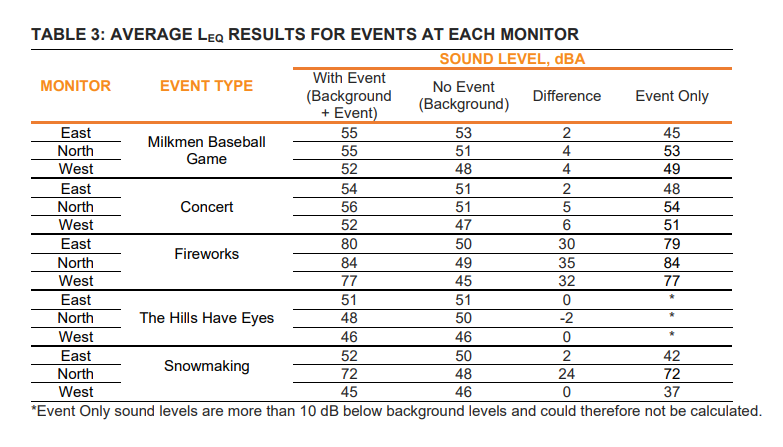
What constitutes a violation?
Defining what constitutes a noise violation for The Rock is not straightforward.
“Due to the lack of clarity of the development agreement and the Franklin noise ordinance, the identification of a violation has been interpreted differently over time,” RSG said.
The December 2017 development agreement between Franklin and The Rock owner ROC Ventures did not specify a noise/decibel limit which would constitute a violation. It instead specifies a 30-minute time limit from a “trigger event” when the violation must be corrected.
For a time, a sound level needed to exceed 79 decibels for 30 minutes or more for Franklin to consider it a violation, RSG noted. The study points out this could allow a violation to continue “if there was even a short break between one song and the next or a relatively quiet period within a song.”
More recently, the city has been counting anything that exceeded 74 decibels during nighttime hours (10 p.m. to 7 a.m.) or 79 decibels during daytime (7 a.m. to 10 p.m.) as a violation, according to RSG.
However, Section 183-41 of Franklin’s noise ordinance mentions nobody should cause a sound “at a level between 70 dBA and 79 dBA as measured at the real property boundary of the noise source or beyond 50 feet from the noise source when operated in a public space without a permit.”
How are sound levels at The Rock enforced?
If Franklin receives a noise complaint, the city requests data from The Rock's three sound meters ― which ROC Ventures must maintain on the property ― for the day of the complaint. The city will analyze the data and listen to audio snippets recorded by the monitors to determine if the noise exceeded ordinance limits.
With the current system, Grzezinski and RSG noted the burden is on citizens to enforce the noise standard rather than the ROC reporting to the city about its activities.
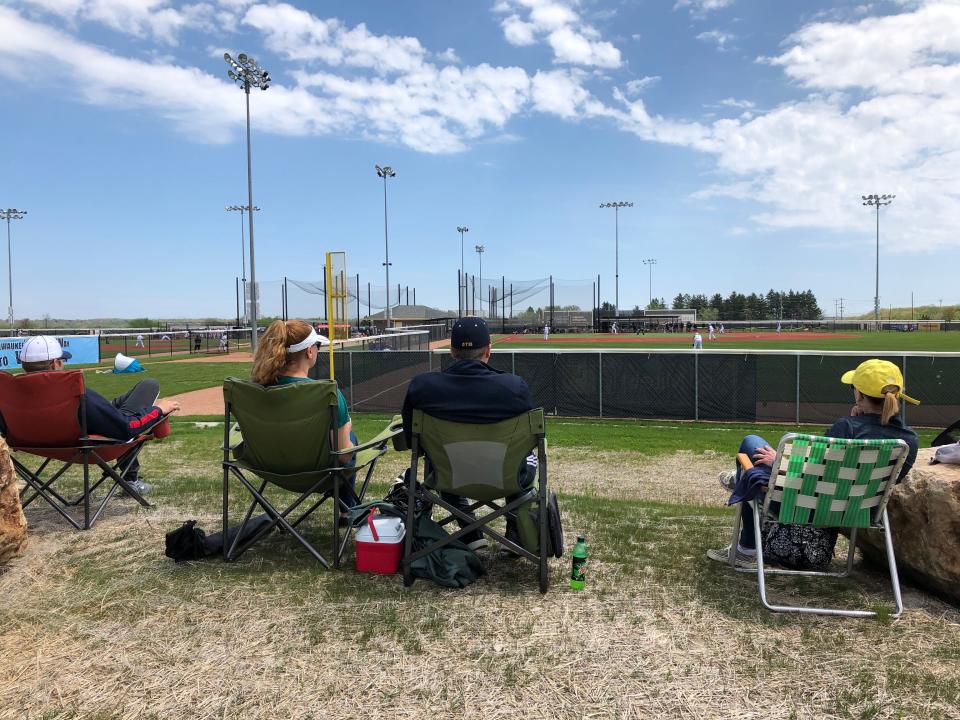
What does the study recommend?
RSG recommends design improvements at Franklin Field, sound calibration methodology for the Umbrella Bar, providing notifications of and limiting firework and helicopter events, sound mitigation for the Hills have Eyes, changes to the compliance monitoring locations and available data to help The Rock, Franklin and Greendale respond to exceedances.
Grzezinski suggested ROC Ventures install a directed sound system at the Umbrella bar, as was a requirement in the development agreement. Musicians have been bringing their own equipment.
“Having speakers permanently configured to direct sound into the immediate audience area, and not towards nearby residential neighborhoods, should reduce complaints and also allow reduced noise volumes saving energy and costs to the operator,” he wrote.
It’s also recommended The Rock relocate and/or reconfigure its speakers at the stadium to direct amplified sound down and toward the audience rather than outward toward residents.
Additionally, Grzezinski said ROC Ventures needs to maintain its three monitoring systems.
RSG noted the east and west monitors operated by The Rock per an agreement with Franklin were not operating and may not have been for close to a year.
Additionally, the northern monitor, while operational, “has not been properly field calibrated in almost four years,” which RSG said can cause data provided to be unreliable.
Contact Erik S. Hanley at erik.hanley@jrn.com. Like his Facebook page, The Redheadliner, and follow him on Twitter @Redheadliner.
Our subscribers make this reporting possible. Please consider supporting local journalism by subscribing to the Journal Sentinel at jsonline.com/deal.
DOWNLOAD THE APP: Get the latest news, sports and more
This article originally appeared on Milwaukee Journal Sentinel: The Rock in Franklin is too loud at times, study finds

